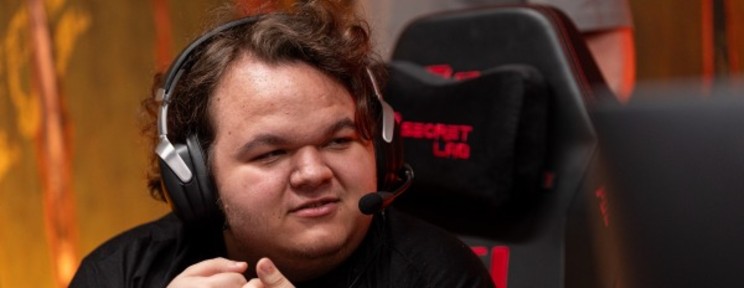The world of professional Dota 2, often lauded for its electrifying plays and strategic depth, has once again found itself embroiled in a controversy that pulls back the curtain on the intense, often unforgiving, realities behind the screens. At the heart of this latest storm are two prominent figures: veteran coach Kanishka Sam “BuLba” Sosale and former player Mark “mangekyou” Kharlamov. What began as a grim admission of match-fixing has spiraled into a complex web of accusations, bringing to light the delicate balance of trust and professionalism within esports teams.
The Initial Spark: Match-Fixing and a Stunning Admission
The saga ignited when coach BuLba publicly implicated mangekyou in “322” incidents – a term synonymous with match-fixing in Dota 2, referencing a famous instance where a team bet against themselves and won. Match-fixing is an egregious offense in any sport, but especially in esports, where the integrity of online competition is paramount. The accusation alone sent ripples through the community. However, mangekyou`s response was nothing short of a bombshell:
He admitted to the 322 allegations.
This admission, while confirming the worst fears of many fans, was not the end of the story. Instead, it served as a preamble to a retaliatory volley of accusations from mangekyou against BuLba, painting a picture of a toxic working environment and alleging personal humiliation at the hands of his former coach.
Mangekyou`s Counter-Allegations: Bullying and Broken Monitors
In a lengthy open letter, mangekyou detailed his version of events, confessing to the match-fixing but simultaneously pointing the finger at BuLba. He claimed the coach subjected him to “periodic humiliations,” constant criticism of his gameplay, and even went as far as to state that BuLba had broken his monitor. These were serious accusations, shifting the narrative from a clear-cut case of player misconduct to a messy dispute involving professional ethics and personal conduct.
The revelation ignited a fresh debate: could a player`s alleged misconduct be a symptom of a deeper, more systemic issue within a team`s coaching structure? Or were these simply the desperate claims of a player caught red-handed?
BuLba`s Vigorous Defense: Unprofessionalism and Untruths
BuLba was swift to respond, unequivocally refuting mangekyou’s bullying allegations. His rebuttal, delivered with stark clarity, painted a starkly different picture of their time together at Shopify Rebellion. According to BuLba, mangekyou`s account of being bullied was entirely unfounded. Instead, he detailed a pattern of highly unprofessional behavior from the player, which ultimately led to his dismissal:
- Toxicity: BuLba described mangekyou as a consistently toxic presence.
- Lack of Punctuality: The player was reportedly always late.
- Communication Breakdown: A critical issue in team-based games, mangekyou allegedly barely communicated during games or training sessions.
- Misplaced Priorities: BuLba claimed mangekyou prioritized streaming and public matchmaking over essential team practices.
- Refusal to Practice: There were instances where mangekyou allegedly refused to participate in scrims, forcing the cancellation of crucial training sessions.
BuLba emphasized that the decision to part ways with mangekyou from Shopify Rebellion was not based on personal animosity or alleged bullying, but rather on concrete evidence linking the player to 322 matches. Once these proofs were undeniable, the organization had no choice but to act decisively to preserve its integrity.
The Deeper Currents: Integrity, Pressure, and Performance
This incident, while specific to BuLba and mangekyou, casts a broader spotlight on several critical issues plaguing the esports ecosystem:
- The Scourge of Match-Fixing: “322” remains a persistent threat to esports, undermining fan trust and devaluing competitive play. Organizations and governing bodies continually grapple with how to effectively detect and deter such fraudulent activities.
- Player-Coach Dynamics: The relationship between a coach and a player is often intense, demanding, and fraught with potential for conflict. Coaches are tasked with maximizing performance, which can involve stern criticism and tough decisions. However, distinguishing between constructive feedback, demanding expectations, and outright bullying can be a fine line, especially under the immense pressure of professional play.
- Accountability in Esports: When accusations fly, the community demands transparency and accountability. Both players and organizations face scrutiny, and their responses shape public perception and future career prospects.
Mangekyou`s tenure with Shopify Rebellion, from September 2024 to February 2025, saw the team achieve modest results, including a 7th-8th place finish at ESL One Bangkok 2024 and 15th-16th at FISSURE PLAYGROUND Belgrade 2025. Today, mangekyou is not actively competing on the professional stage.
Conclusion: A Complex Narrative Unfolds
The BuLba-mangekyou saga serves as a potent reminder that the professional esports arena is not merely about mechanical skill and strategic prowess; it`s a high-stakes environment where personal integrity, professional conduct, and team dynamics intertwine in complex, often dramatic, ways. While mangekyou`s admission of match-fixing undeniably stains his record, the counter-allegations against BuLba add layers of complexity, inviting reflection on the responsibilities of both players and coaches in fostering a healthy yet competitive environment. As the dust settles, the esports community will undoubtedly continue to dissect this incident, seeking lessons on how to uphold the competitive spirit while safeguarding the well-being and ethical conduct of everyone involved.

